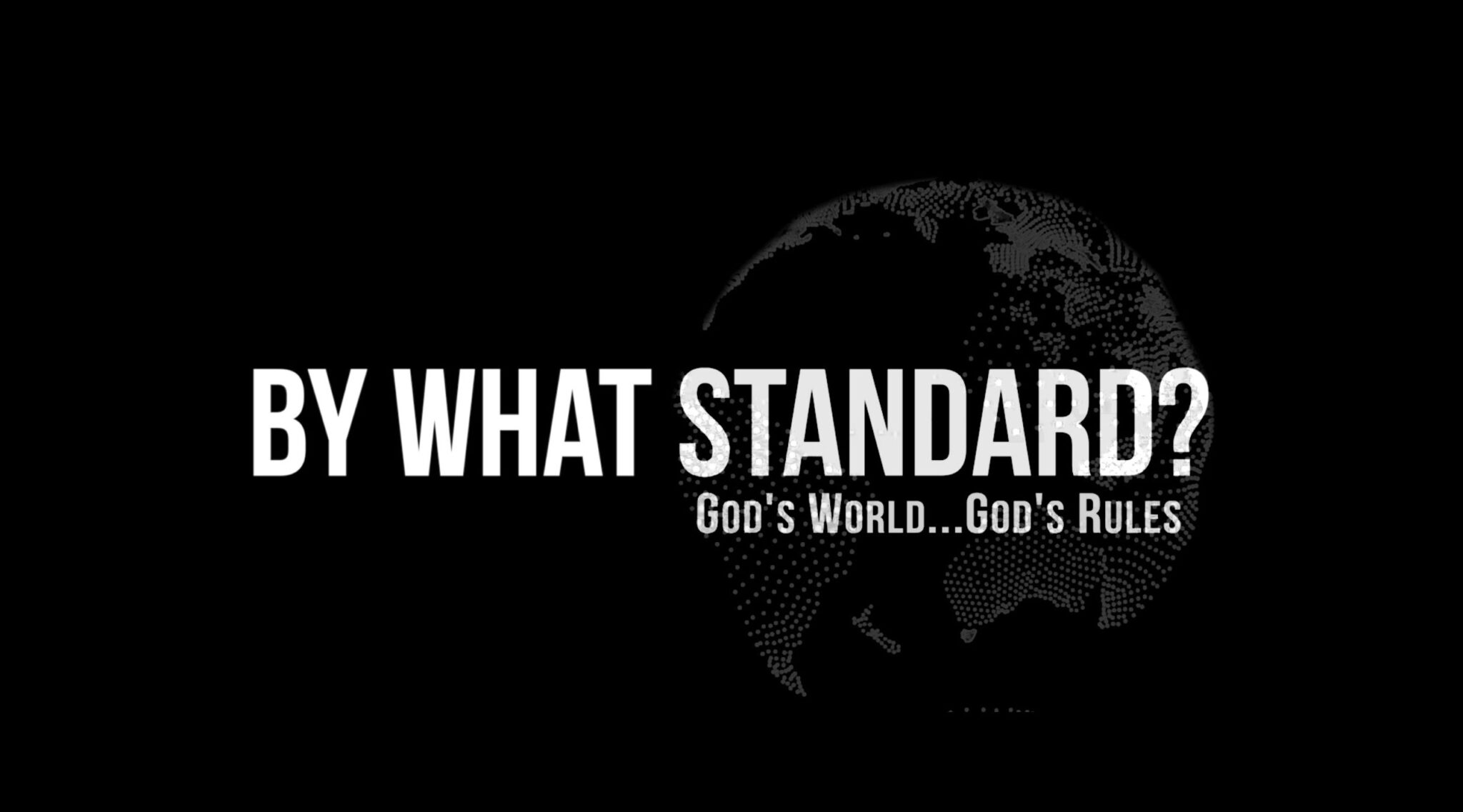An Unbreakable/Unconditional Covenant
Building on point #4 in the previous article about who are the unmixed members of the NC, if it were possible that NC members could break Christ’s covenant through apostasy, or keep it through perseverance, then this causes some problems. Let’s reiterate again what Jeremiah 32: 38-40 says:
“And they shall be my people, and I will be their God. I will give them one heart and one way, that they may fear me forever, for their own good and the good of their children after them. I will make with them an everlasting covenant, that I will not turn away from doing good to them. And I will put the fear of me in their hearts, that they may not turn from me.” (emphasis mine)
If there is no greater proof of the impossibility of NC members falling away, it should be this. Our preservation and perseverance is sure because we’ve been given a new nature. And this truth vindicates to the fact that the nature of the NC is unbreakable and unconditional. These are all interwoven threads from the sovereign needlework God.
Moreover, we run into some massive theological issues when we believe any member of the NC can break it (some of which we summarize below). Because if the Messiah truly fulfills all the promises and prophecies concerning our redemption, and inaugurates the NC by his death and resurrection, through which we are graciously saved, then it further demands that the NC is unconditional and cannot be broken based upon our actions. Especially since, once again, we are given a new nature in Christ. But if this is not the case, and the NC is somehow conditional and breakable, then how do we fulfill or keep that which Christ has already sufficiently and vicariously completed in our place?
Note: Since the unbreakableness of the New Covenant is directly related to its unconditional nature, from this point forward, we will unite these distinctions together as one for the sake of brevity.
The Abrahamic Promise/Covenant
A breakable covenant has conditions that must be kept by all/some of the parties involved, which, if not kept, can be broken. One such example is the covenant of circumcision given to Abraham. When God gave the sign of the covenant (circumcision) to Abraham (Genesis 17:9-11), it required obedience to keep it. Because of this, it can be broken by disobedience (Genesis 17:14). Another qualification is that there are punishments, curses, or consequences that follow for covenant breaking. In this instance, being uncircumcised was grounds for being cut off.
Now, there were some unconditional promises given to Abraham in Genesis 15 before chapter 17 (which God alone has kept), because it is regarding salvation by faith alone (Romans 4:3-9), and the promise of the coming seed (Christ) to redeem us to name a few things. And this is ultimately demonstrated and fulfilled via the unconditional promise inaugurated by Christ’s blood in the NC (Galatians 3:5-18).
The context of God’s unconditional promise made to Abraham in Gen. 15 versus the conditions concerning the covenant of circumcision in Gen, 17 is too great to tease out here. But the encouragement we should lay hold of is this:
The NC is not like the breakable conditions made to Abraham in Genesis 17. If it was, it would require persevering obedience to keep it. Since the covenant of circumcision was conditional, it can be broken. But since God has made an unconditional promise in Genesis 15 concerning the coming seed (Christ), who himself fulfilled and kept the conditions of the covenant on our behalf by inaugurating a new covenant, we are no longer underneath a conditional covenant. Nor has this conditional administration taken on a newer form, like baptism. And because receiving eternal salvation is not conditioned by anything we do, it is truly unbreakable! Because who can make God go back on his promises? Such is the nature and promise of the NC to God’s people.
The Mosaic Covenant
Another example of a breakable covenant is the Mosaic Covenant. The children of Israel were commanded to keep the commands of God of this covenant (Deuteronomy 27:1; 28:1) in order to receive the blessings associated with the promise. But, history bears out that the children of Israel did not repeatedly obey God’s commands, despite his loving-kindness and faithfulness to them. And because God is faithful to administer justice just as much as his blessings, the children of Israel received the curses and punishments associated with this covenant (Deut. 28:15). And because the obedience of Israel was the condition of the blessings, they were therefore able to break the covenant.
Just like the covenant of circumcision, the Mosaic Covenant carries the same breakable nature. And because of Israel’s repeated disobedience to keep it, Jeremiah 31:32 reveals that God was going to make a covenant with Israel “not like the covenant that I made with their fathers on the day when I took them by the hand to bring them out of the land of Egypt, my covenant that they broke, though I was their husband, declares the LORD.” And unlike those breakable covenants, the NC was founded upon a better mediator with better promises (Hebrews 8:6). And by Christ’s death, he inaugurates and fulfills the better and unconditional promises given to God’s elect (Hebrews 9:15-22). But also, he victoriously takes upon himself the curses of the law (Galatians 3:13) to fulfill the demand of justice in our place, becoming sin (2 Corinthians 5:21), thereby satisfying the demands of the law (i.e. life given in death – Col. 2:14; Heb. 9:23-26), in order to give us redemption and new life (Rom. 5:10; Gal. 2:20; Heb. 9:14).
Therefore, since the conditions of the covenant were totally and gloriously fulfilled by Jesus, God’s people receive their eternal inheritance by his sacrifice. And since this covenant is not like the old, which was constantly broken, we are assured as NC members that there is nothing we can do to break or further fulfill this covenant. The work has been finished and completed by our heavenly Mediator and High Priest, our LORD Jesus Christ.
The Adamic Covenant
Now this is where the rubber meets the road. Of all the breakable covenants, the covenant that God made with Adam before the fall is paramount in our understanding of the unmixed, unconditional, and unbreakable nature of the NC. One might ask why I saved this covenant for last. Because this is where it all started! In the beginning, Adam stood as our federal head, representing all mankind when his teeth sunk into the forbidden fruit, plummeting the human race into sin and destruction. Because of this, we are born with a sin nature, pervasively depraved, and unwilling to turn to God. This is the doctrine of original sin. But in order to consistently believe all this, we must also believe that God covenanted with Adam (Genesis 2:15-17; Romans 5:18-19).
Just as Adam is our federal head via the Adamic Covenant, so is Christ via the NC. I recognize that some may not believe that there is such a thing as an Adamic covenant. I understand. It took years for me to be convinced. But even if someone doesn’t believe this, they still must believe that Adam was given a set of conditions in the garden. Which, if he and Eve had kept, we would not be in the situation we are today. Others would say God gave Adam a law, and not a covenant. Either way, law insulates conditions. So regardless, by eating of the tree of good and evil, there were fatal consequences, literally. Therefore, making this covenant/law breakable by default.
But Christ (I love those two words), being our last Adam (1 Corinthians 15:45-49), who descended from heaven to reverse the curse of the fall, by dying and resurrecting, ascended back into the heavens in order to stand in the presence of God for us as our representative (Hebrews 9:24). He has lived the sinless life, through his perfect and active obedience, crushing the head of the serpent (Genesis 3:15; Hebrews 2:12) through his death, thereby inaugurating a NC that has fulfilled all the conditions that Adam did not on our behalf, granting us access to the tree of life. Because Christ is now our new Federal Head and Mediator through the NC, we are no longer condemned by our sinful nature/works in Adam. But we are made new creatures through him that loved us and gave himself for us (Romans 6:6; 8:37; 2 Cor. 5:17; Colossians 3:10; Titus 2:14).
Why Does This Matter?
So why all the hubbub? Why is this important to know? Because a biblical understanding of the NC leads to a biblical περιπατέω (peripateō – “walk”). This affects our hermeneutics, philosophy of ministry, ecclesiology, and most importantly, our soteriology. Here are several reasons why this is so important.
- It strengthens our perseverance. In the book of Hebrews, one of the themes is apostasy. Contrasting that with a “Jesus is better” motif, the writer inspires us to remain steadfast, and to finish the race (Hebrews 12:1-2) by looking unto Jesus. One of the ways the author inspires us is by reminding us of the promise of the NC in Christ. As we already mentioned, chapters 8-10 summarizes for us the nature and purpose of the NC, and how we are not of those that fall away, but persevere (Hebrews 10:9). This builds our assurance and our resolution to remain faithful in the face of trial and persecution because of our great High Priest who intercedes for us.
- It preserves our soteriology. Even though many will “fall away,” it is only because they weren’t truly members of the NC to begin with. What this does is preserve the integrity of Christ’s blood and the absolute surety of our salvation (2 Tim. 2:19; Heb 6:18-19). By viewing the NC as an unbreakable/unconditional covenant, we can be confident that no member of it will ever ultimately fall away. This defeats the idea that true Christians can lose their salvation, and LORD willing, will cause those who have never been saved to begin with to come under holy conviction and repent. I can’t tell you how many times the Holy Spirit has stopped a former Christian in their tracks when I bring this up in conversation.
- It protects the Church’s holy distinction from the world. What I mean by this point is that because the Bride of Christ is unmixed, whether we are baptized, take communion, or do any other works to validate our faith and become a member of our local church, if the NC consists of only regenerate members, than those who are saved by it are assured of their membership by faith alone, through grace alone, in Christ alone. This not only destroys a works-based salvation, but it causes those who profess Christ to have a deeper reflection as to whether or not they are a member of the NC by Christological efficacy. This, in turn, doesn’t give the title of “Christian,” or “NC member” to any unbeliever. And LORD willing, causes those who wish to be so to soberly examine themselves. And thus, ultimately protects the Bride’s identity in Christ as unsullied by apostates or pretenders.
- It vindicates the atonement of Christ. This point deserves its own section.
The Blood Of The New Covenant
I pray that what I’m about to say here is received with much grace, love, and concern because the implications here are weighty. The blood of Jesus Christ was spilled to save sinners. More specifically, the elect. When a sinner is saved, they are given a new nature and a membership in the NC by his blood. This new nature consists of a new heart that lovingly obeys him. And by his sacrifice is this wonderful promise carried out. Yet, if the NC can be broken in any way, not only would Jeremiah and Hebrews need to be rewritten, but also, it cannot be said enough that the blood of the atonement inaugurates conditional promises. And while I have only been able to get a few people to admit this when I pressed them, this is the consistent conclusion.
If we could break the NC by our disobedience and falling away, then this implies that there is also something we can do to fulfill, or dare I say complete, it by our own perseverance. If we can break it by our falling away, then it follows we must keep it by our perseverance. By saying that a NC member (however that is defined) can fall away, or that any unbeliever can become a member of it, is to dilute the blood of the covenant and rust the golden chain of redemption. Instead of works and persevering obedience being a natural consequence of becoming regenerated through the power of this covenant, our own perseverance now inadvertently becomes an essential requirement to it. And whether we realize it or not, believing that we can break the NC by apostasy, leads to this consistent conclusion. In other words, instead of the unconditional and unbreakable promises of the NC working itself out in those who are its members, thus vindicating the promise through a victorious life, it can be broken by our own volition and vindicated by our perseverance.
Conclusion
The NC is unmixed, unbreakable, and unconditional, The blood which inaugurated the NC is meant only for believers (God’s elect). And only believers can be members of the NC. No unbeliever in the history of mankind has ever been a member of the New Covenant/Covenant of Grace. No covenant member has ever broken it by their apostasy. Nor has their perseverance been an essential component to keeping it. We are preserved by the power of the NC, and perseverance is the spiritual overflow of the mighty working of God through it. By seeing the NC in this glorious and promise-keeping fashion, can we truly appreciate the height, width, and depth of Jesus’ loving promise to save a particular people as his Bride. And also see how God has fulfilled and is fulfilling his prophetic promises made to his people through this better covenant. The NC truly is good news.
-Until we go home






Trackbacks/Pingbacks